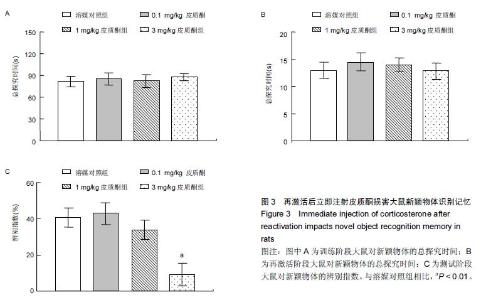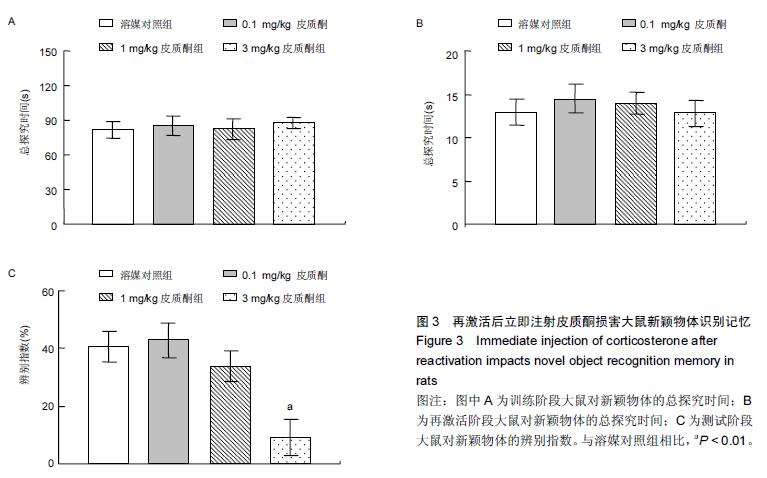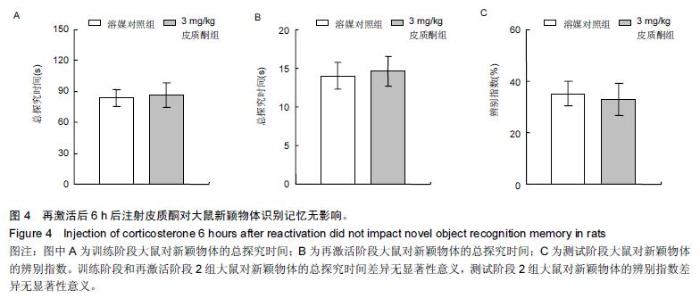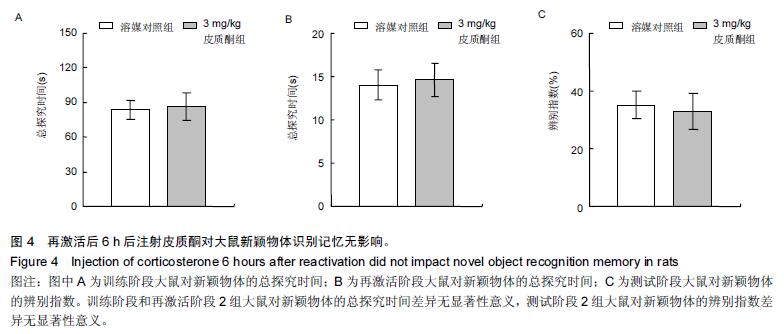| [1] Forcato C, Fernandez RS, Pedreira ME. Strengthening a consolidated memory: the key role of the reconsolidation process. J Physiol Paris. 2014;108(4-6):323-333. [2] G?dek-Michalska A, Tadeusz J, Rachwalska P, et al. Cytokines, prostaglandins and nitric oxide in the regulation of stress-response systems. Pharmacol Rep. 2013;65(6):1655-1662. [3] Akirav I, Maroun M. Stress modulation of reconsolidation. Psychopharmacology (Berl). 2013; 226(4):747-761. [4] Abrari K, Rashidy-Pour A, Semnanian S, et al. Administration of corticosterone after memory reactivation disrupts subsequent retrieval of a contextual conditioned fear memory: dependence upon training intensity. Neurobiol Learn Mem. 2008; 89(2):178-184. [5] Wang XY, Zhao M, Ghitza UE, et al. Stress impairs reconsolidation of drug memory via glucocorticoid receptors in the basolateral amygdala. J Neurosci. 2008;28(21):5602-5610. [6] Nikzad S, Vafaei AA, Rashidy-Pour A, et al. Systemic and intrahippocampal administrations of the glucocorticoid receptor antagonist RU38486 impairs fear memory reconsolidation in rats. Stress. 2011;14(4): 459-464. [7] Achterberg EJ, Trezza V, Vanderschuren LJ. Glucocorticoid receptor antagonism disrupts the reconsolidation of social reward-related memories in rats. Behav Pharmacol. 2014;25(3):216-225. [8] Balderas I, Rodriguez-Ortiz CJ, Bermudez-Rattoni F. Consolidation and reconsolidation of object recognition memory. Behav Brain Res. 2015;285:213-222. [9] Tian S, Pan S, You Y. Nicotine enhances the reconsolidation of novel object recognition memory in rats. Pharmacol Biochem Behav. 2015;129:14-18. [10] Jobim PF, Pedroso TR, Werenicz A, et al. Impairment of object recognition memory by rapamycin inhibition of mTOR in the amygdala or hippocampus around the time of learning or reactivation. Behav Brain Res. 2012; 228(1):151-158. [11] Golkar A, Bellander M, Olsson A, et al. Are fear memories erasable?-reconsolidation of learned fear with fear-relevant and fear-irrelevant stimuli. Front Behav Neurosci. 2012;6:80. [12] Alberini CM. Mechanisms of memory stabilization: are consolidation and reconsolidation similar or distinct processes? Trends Neurosci. 2005;28(1):51-56. [13] Blake MG, Boccia MM, Krawczyk MC, et al. Choline reverses scopolamine-induced memory impairment by improving memory reconsolidation. Neurobiol Learn Mem. 2012;98(2):112-121. [14] Kelly A, Laroche S, Davis S. Activation of mitogen-activated protein kinase/extracellular signal-regulated kinase in hippocampal circuitry is required for consolidation and reconsolidation of recognition memory. J Neurosci. 2003;23(12): 5354-5360. [15] Bozon B, Davis S, Laroche S. A requirement for the immediate early gene zif268 in reconsolidation of recognition memory after retrieval. Neuron. 2003;40(4): 695-701. [16] Rossato JI, Bevilaqua LR, Myskiw JC, et al. On the role of hippocampal protein synthesis in the consolidation and reconsolidation of object recognition memory. Learn Mem. 2007;14(1):36-46. [17] De Kloet ER, Vreugdenhil E, Oitzl MS, et al. Brain corticosteroid receptor balance in health and disease. Endocr Rev. 1998;19(3):269-301. |





